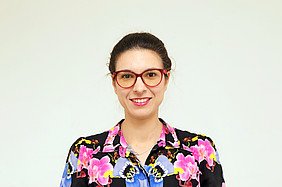Intermarriages, a pivotal element of social cohesion and interaction between majorities and sub-state ethnic minorities, evoke varying perspectives. They are either embraced as conduits for alleviating tensions between nations and sub-state minorities or criticized as influential agents of assimilation and perceived as disruptors of ethnic minority communities. There has been limited methodical research into the social aspects, family dynamics, and identity construction of individuals within intermarriages within the Central and Eastern European (CEE) and Western Balkan (WB) regions. The primary objective of the Intermarriage and Ethnic Identity (IMEI) project is to comprehensively analyze the social ramifications of intermarriages between members of ethnic minority communities and the majority populations in Vojvodina, a notably multi-ethnic region in Serbia. The IMEI project aims to contribute significantly to the existing body of knowledge by scrutinizing the social impacts of intermarriages across three levels: the individual (micro), the family (meso), and the societal (macro) in this diverse geographic region. At the individual level, the project will investigate the transformations in ethnic and cultural identities experienced by partners involved in intermarriages. On the family level, we will delve into the processes of intergenerational transmission of ethnic, religious, and cultural markers. On the societal level, the project will examine the functioning of contemporary ethnic minority policies and legal frameworks in Serbia and their influence on intermarriages. This research holds broader relevance within the European context, as it specifically targets Hungarian, Slovak, and Romanian ethnic minorities residing in Vojvodina. These ethnic groups share connections with their kin-states (Hungary, Slovakia, Romania), all of which are members of the European Union. Consequently, members of these ethnic minorities often hold dual Serbian and EU citizenship, making them subject to the Framework Convention for the Protection of National Minorities and the European Charter for Regional or Minority Languages. These EU policies are crucial instruments for safeguarding (its) minority rights, thereby enhancing the significance of the IMEI project.
Karolina Lendák-Kabók, PhD, holds an Assistant Professorship at the Faculty of Philosophy, University of Novi Sad, Serbia. She earned her BA (2010) and MA (2012) degrees at the Faculty of Law and completed her PhD in Gender Studies (2019) at the Center for Gender Studies, University of Novi Sad, Serbia. From October 2021 to September 2022, she served as the coordinator of the University Centre for Interdisciplinary and Multidisciplinary Studies and Research – UCIMSI, temporarily stepping down to begin her Maria Skłodowska-Curie Individual Fellowship (2022-2024). Karolina's research focuses on the position of ethnic minorities, language barriers, gender differences in academia, and ethnic intermarriages. She is the author of the book titled Ethnic Minorities in Serbian Academia – the Role of Gender and Language Barrier, published by Palgrave Macmillian (2022). Additionally, she edited a book of essays by ethnic minority Hungarian women living in Serbia titled Üvegplafon? (English title: Glass Ceiling?, Forum 2020). Karolina was honored with the "Anđelka Milić" Award for enhancing gender equality at the University of Novi Sad in 2022, and she received the Crystal Ball Award in 2017 for her outstanding scientific contributions as a young scholar. In 2014, she was awarded the "National Excellence" scholarship in Hungary and participated in the Hungarian three-year-long "Collegium Talentum" research scholarship program (2013 – 2016) for gifted ethnic Hungarian students living outside the Hungarian border. Karolina has been a visiting researcher at Central European University (Budapest, Hungary) in 2015, University of Sydney (Australia) in 2016, Université Paris-Est Créteil (Paris, France) in 2018, University of Lausanne (Switzerland) also in 2018, and Purdue University (USA) in October 2021. She was also invited as a speaker at the Sociology Department, Graduate School of Letters, Kyoto University, Japan, in March 2019. During the winter semester of 2019, she served as an external researcher at ELTE, Faculty of Social Sciences, Budapest, Hungary, with a scholarship awarded by the "Délvidékért Kiss" Fund. Karolina has authored or co-authored more than 40 journal and conference papers. Aside from her academic pursuits, Karolina is a dedicated mother of three underage children.

